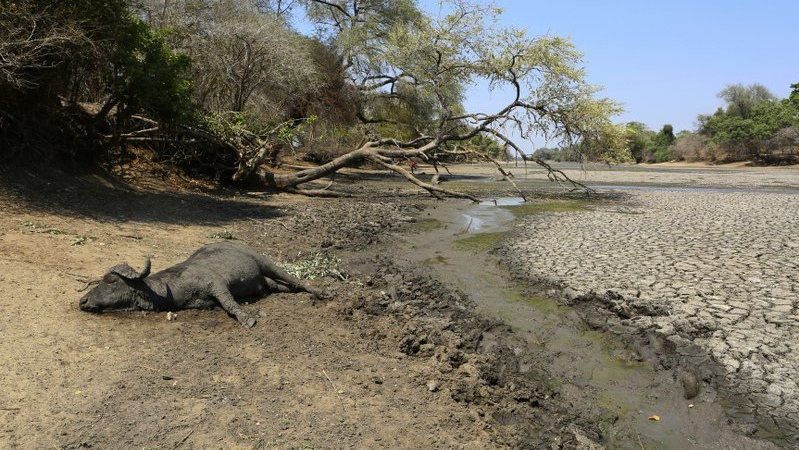
A buffalo carcass lies on the edge of a sunbaked pool that used to be a perennial water supply at Mana Pools National Park, Zimbabwe. /AP Photo
A buffalo carcass lies on the edge of a sunbaked pool that used to be a perennial water supply at Mana Pools National Park, Zimbabwe. /AP Photo
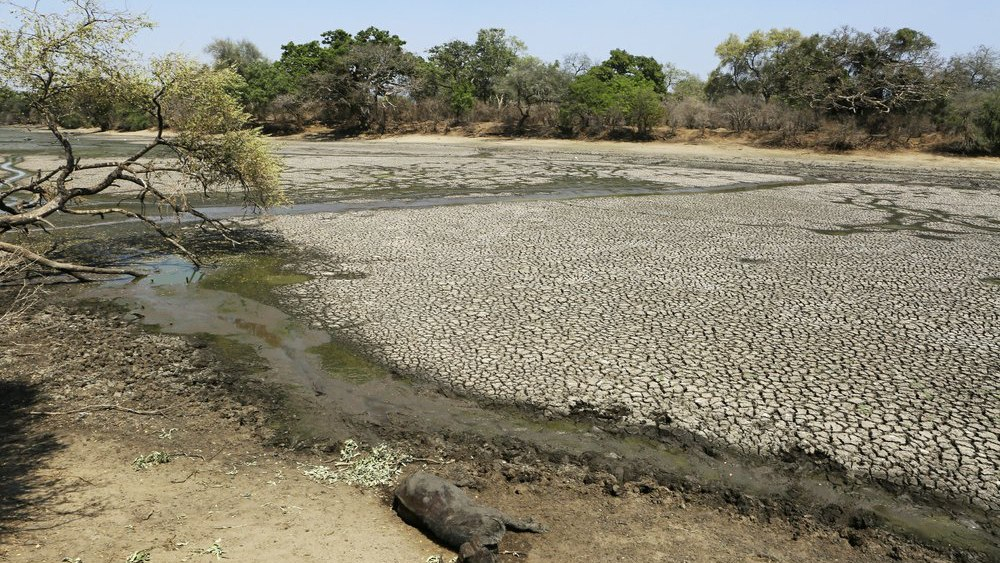
Water sources run dry at the park. /AP Photo
Water sources run dry at the park. /AP Photo
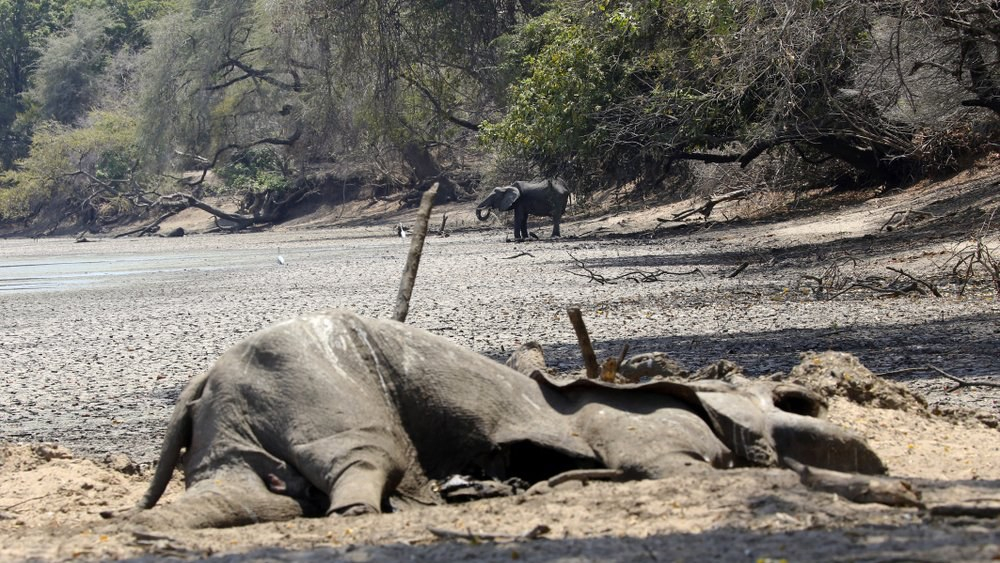
The carcass of an elephant at Mana Pools National Park. /AP Photo
The carcass of an elephant at Mana Pools National Park. /AP Photo
Weak from hunger and thirst, an elephant struggled to reach a pool of water in Zimbabwe's Mana Pools National Park. But, the majestic mammal got stuck in the mud surrounding a sunbaked watering hole which had shrunk dramatically due to a severe drought.
Staff at the park eventually freed the trapped elephant, though it later collapsed and died. Just meters away lay the carcass of a Cape buffalo that had also been pulled from the mud, but was attacked by hungry lions.
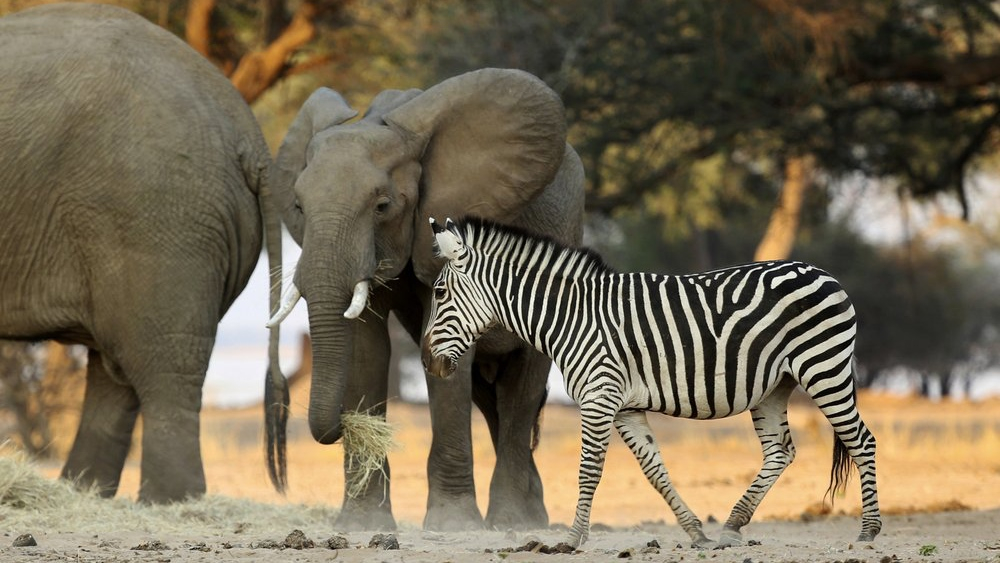
Elephants and zebras feed on hay provided by the Feed Mana project in Mana Pools National Park, Zimbabwe. /AP Photo
Elephants and zebras feed on hay provided by the Feed Mana project in Mana Pools National Park, Zimbabwe. /AP Photo
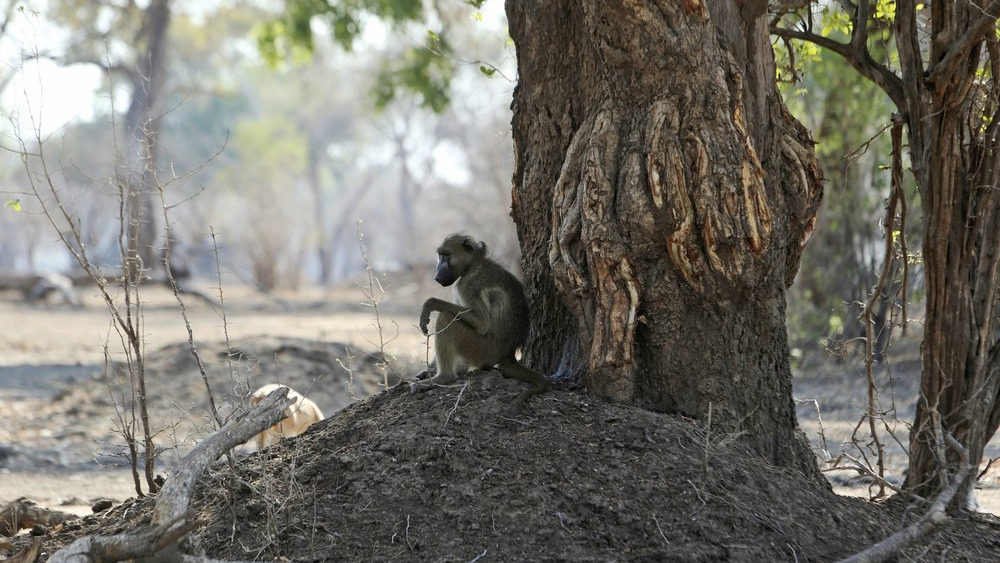
A baboon sits under a tree in Mana Pools National Park, Zimbabwe. /AP Photo
A baboon sits under a tree in Mana Pools National Park, Zimbabwe. /AP Photo
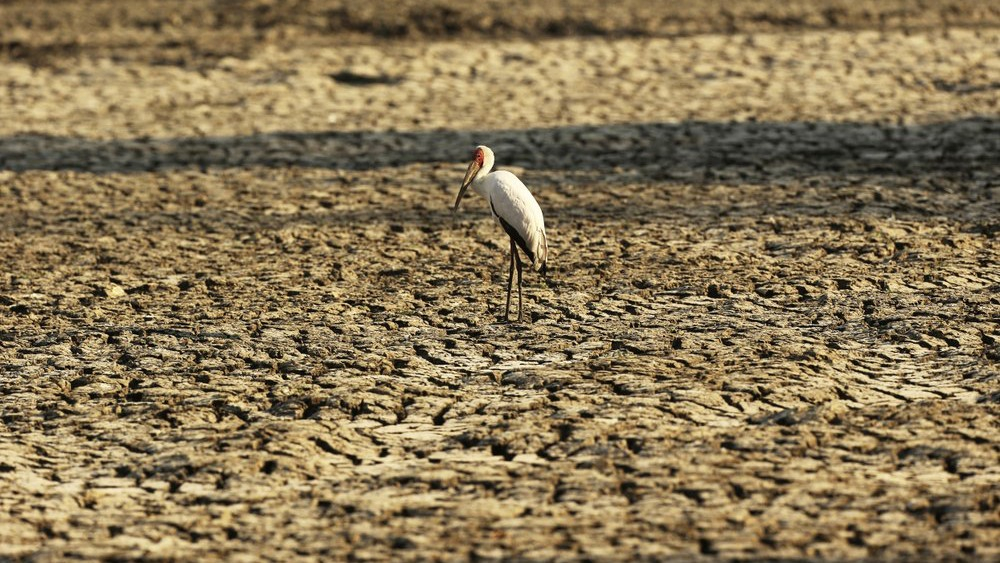
A bird stands on a sun-baked pool that used to be a perennial water supply in Mana Pools National Park. /AP Photo
A bird stands on a sun-baked pool that used to be a perennial water supply in Mana Pools National Park. /AP Photo
Elephants, zebras, hippos, buffaloes, impalas and many other species of wildlife are suffering from a lack of food and water in Mana Pools National Park.
The area annually experiences hot, dry weather at this time of year. But, the current situation is particularly severe due to poor rains in 2018. The Zambezi River's flow has reduced.
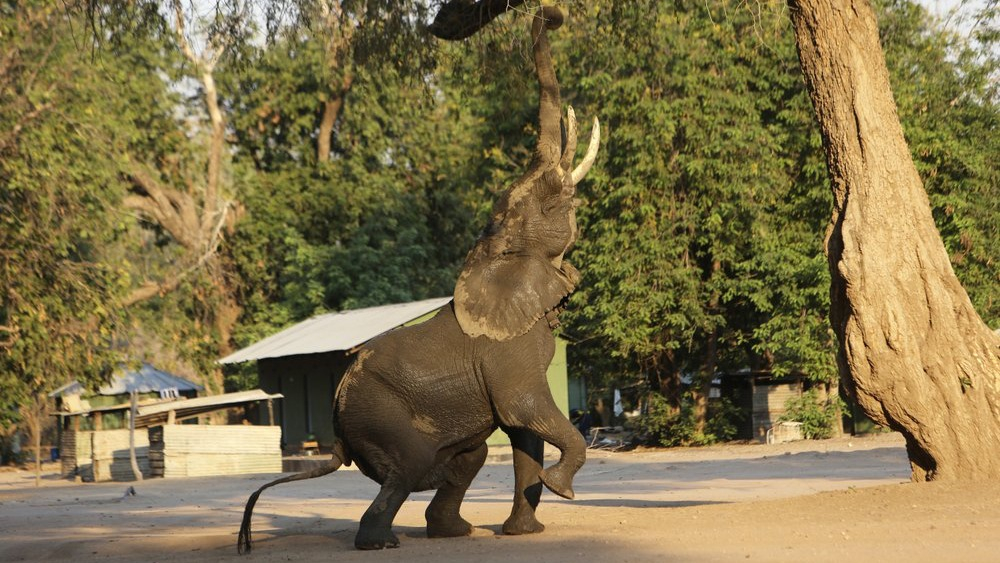
An elephant feeds on fruit from under a tree in Mana Pools National Park, Zimbabwe. /AP Photo
An elephant feeds on fruit from under a tree in Mana Pools National Park, Zimbabwe. /AP Photo
In the past two months, at least 105 elephants have died in Zimbabwe's wildlife reserves, most of them at Mana and the larger Hwange National Park, according to the Zimbabwe National Parks and Wildlife Management Authority. Many desperate animals are straying from Zimbabwe's rural areas and into nearby communities in search of food and water.
Seasonal rains are expected soon but park officials and wildlife lovers, fearing that too many animals will die before then, are bringing food to help the distressed animals. The unusually harsh conditions have persuaded park authorities to abandon their usual policy of not intervening.
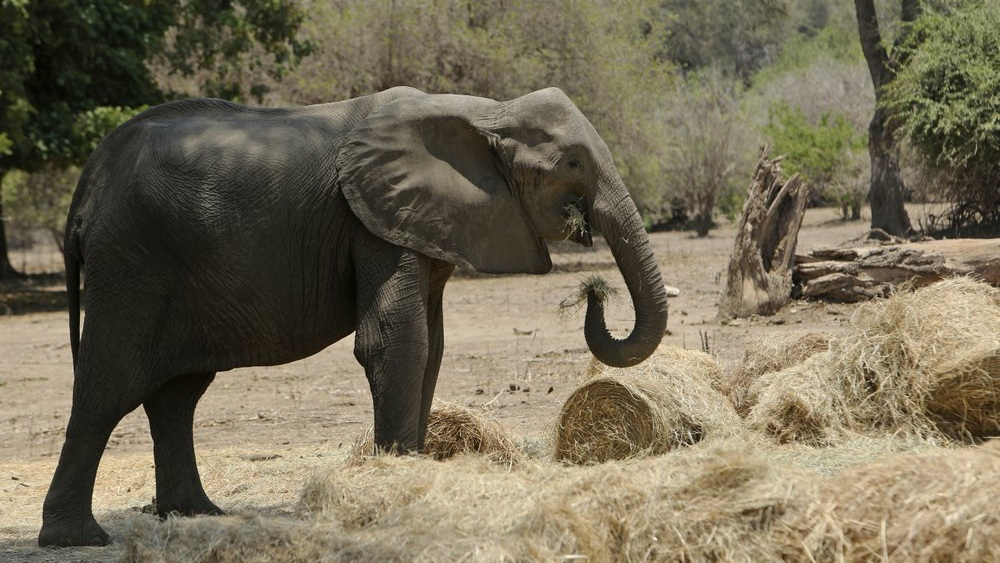
An elephant feeds on hay provided by the Food Mana project. /AP Photo
An elephant feeds on hay provided by the Food Mana project. /AP Photo
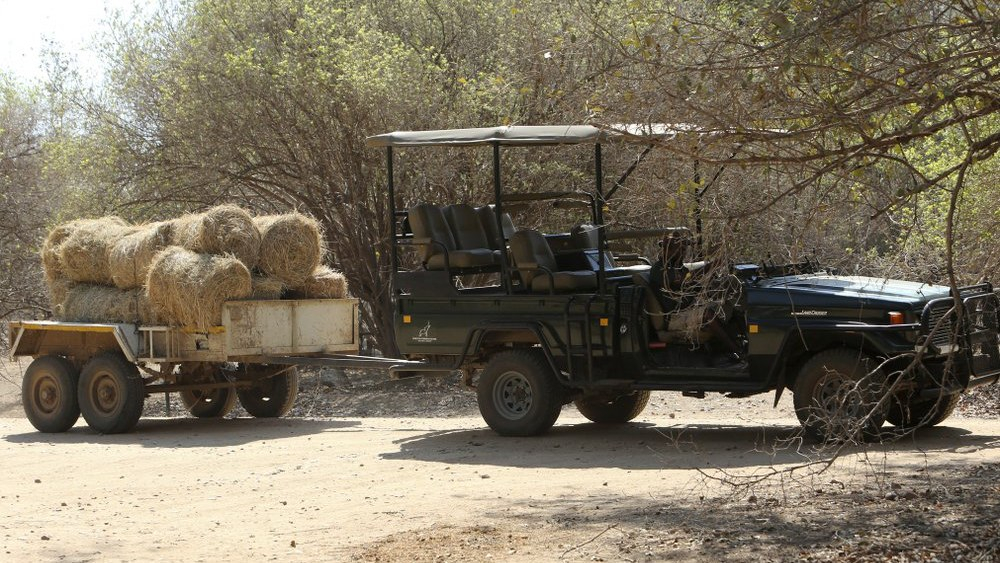
A vehicle transports hay to feed wild animals at Mana Pools National Park. Wardens and wildlife lovers are trucking in food to help the distressed animals. /AP Photo
A vehicle transports hay to feed wild animals at Mana Pools National Park. Wardens and wildlife lovers are trucking in food to help the distressed animals. /AP Photo
Mana Pools National Park is named after the four pools of water normally filled by the flooding Zambezi River each rainy season, at which wildlife traditionally drink. The word "mana" means "four" in the Shona language spoken by some of Zimbabwe's population. The pools are a UNESCO World Heritage Site.
The drought parching southern Africa is also affecting people. According to the World Food Program, which is planning large-scale food distribution, an estimated 11 million people are threatened with hunger in nine countries in the region. The countries of southern Africa have experienced normal rainfall in only one of the past five growing seasons.
(All photos by Tsvangirayi Mukwazhi via AP)
(If you want to contribute and have specific expertise, please contact us at nature@cgtn.com.)
Source(s): AP